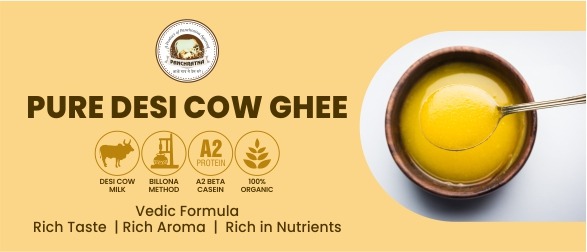Decoding the Difference: A2 vs. A1 Cow Ghee
Introduction: In recent years, there has been growing interest in A2 cow ghee as a healthier alternative to conventional A1 cow ghee. This article aims to shed light on the key differences between A2 and A1 cow ghee, including their composition, production methods, and potential health implications. Understanding these distinctions can help consumers make informed choices about the type of ghee they incorporate into their diets.
Composition: The primary difference between A2 and A1 cow ghee lies in the type of beta-casein protein present in the milk from which they are derived. A2 cow ghee is produced from the milk of cows that exclusively contain the A2 beta-casein protein, while A1 cow ghee comes from cows that produce the A1 beta-casein protein.
Production Methods: The production methods for A2 and A1 cow ghee are generally similar, involving the clarification of butter to remove milk solids and water content. However, the source of the milk used in the production process differs significantly. A2 cow ghee is typically sourced from indigenous cow breeds that naturally produce A2 beta-casein protein, whereas A1 cow ghee may come from breeds that predominantly produce A1 beta-casein protein.
Potential Health Implications:
- Digestive Health: A2 cow ghee is believed to be easier to digest for individuals who may experience lactose intolerance or digestive discomfort after consuming dairy products. This is attributed to the presence of A2 beta-casein protein, which some studies suggest may be less inflammatory and better tolerated by the human digestive system compared to A1 beta-casein protein.
- Inflammatory Response: Some research indicates that the consumption of A1 beta-casein protein found in A1 cow ghee may trigger an inflammatory response in the body, potentially contributing to digestive issues, autoimmune conditions, and other inflammatory-related disorders. In contrast, A2 cow ghee is thought to have a neutral or anti-inflammatory effect on the body, making it a preferable choice for individuals with sensitivities to dairy.
- Nutritional Profile: While the nutritional profile of A2 and A1 cow ghee may be similar in terms of fat content and caloric value, proponents of A2 cow ghee argue that it contains a higher proportion of beneficial nutrients such as omega-3 fatty acids, conjugated linoleic acid (CLA), and vitamins A, D, E, and K. These nutrients are believed to support overall health and well-being, making A2 cow ghee a more nutritious option.
Conclusion: In conclusion, the difference between A2 and A1 cow ghee lies in their beta-casein protein composition, production methods, and potential health implications. A2 cow ghee, sourced from cows that produce A2 beta-casein protein, is considered superior due to its perceived benefits for digestive health, inflammatory response, and nutritional profile. By opting for A2 cow ghee, consumers can enjoy the rich flavor and culinary versatility of ghee while supporting their overall health and well-being.

For More Details And Inquiry For Retail and Bulk Contact Below
Haresh Thakar
WhatsApp: +919979055055
Email.: gaaymaata@gmail.com
Link to buy this products: https://panchratnaayurved.com/product-category/food-beverges/ghee/
